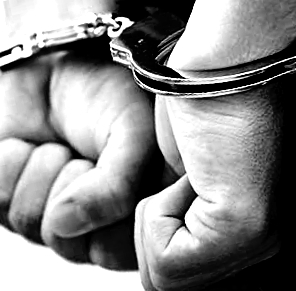Mixed review for youth scheme
 An independent review has revealed mixed results for Queensland Youth Co-Responder Teams.
An independent review has revealed mixed results for Queensland Youth Co-Responder Teams.
Youth Co-Responder Teams (YCRTs), an initiative developed by the Queensland Government in collaboration with the Queensland Police Service, have shown promising results in reducing youth crime.
However, the scheme continues to face criticism regarding its overall effectiveness.
The program, which pairs Department of Youth Justice officers with police officers, aims to prevent and reduce crime by engaging with young people at risk of entering the youth justice system.
Since its inception in 2020, YCRTs have been launched in thirteen locations across Queensland, including Cairns, Townsville, Rockhampton, Moreton, and Logan.
Subsequent expansions saw the inclusion of Mackay, the Gold Coast, Brisbane North, Mount Isa, Fraser Coast, Ipswich, Toowoomba, and South Brisbane by 2023.
An independent evaluation conducted by Nous Group found that the program has had nearly 90,000 engagements with at-risk youth as of March 2024.
On average, YCRTs interact with approximately 6,000 young people per month, with most engagements occurring outside standard business hours, particularly between 2pm and 10pm.
The evaluation revealed a significant decrease in serious offences committed by youth following their engagement with YCRTs.
Specifically, the number of offences such as breaking and entering, illegal use of motor vehicles, and theft decreased substantially.
The most serious offenders saw a 73 per cent reduction in offences committed six months post-engagement compared to the six months prior.
“Around 20 per cent of young people commit 55 per cent of the crime, and it is these serious repeat offenders who we are specifically targeting,” said Queensland’s Youth Justice Minister Di Farmer.
Despite these positive outcomes, the program has faced scrutiny and opposition.
Queensland Opposition Leader David Crisafulli has criticised the overall approach to youth crime in Queensland, arguing that the current programs are insufficient.
He pointed out that 91 per cent of reoffenders continue to reoffend within nine months, suggesting the need for additional or alternative strategies.
The evaluation acknowledged the collaborative efforts between the Queensland Police Service and the Department of Youth Justice, noting the strong degree of information sharing and mutual knowledge transfer.
However, it also highlighted challenges in data gathering, with discrepancies in how the police and youth justice department classify the seriousness of offences.
Department of Youth Justice director-general Bob Gee says the program serves as a “connector” to more intensive supports, and that all changes in youth crime rates could not be attributed solely to YCRTs.
He said drug and alcohol abuse among young people significantly contributes to Queensland's youth crime situation, with instances of very young individuals using intravenous drugs being a particular concern.
The Queensland Government has announced an $11.2 million investment over two years to increase the program's capacity.
This funding will provide additional vehicles to high-demand areas such as Cairns and the Gold Coast and establish new teams on the Sunshine Coast and in the South West district.








 Print
Print